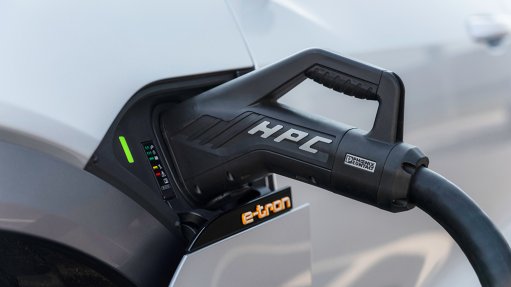
Sanctioning Russian nickel will slow the adoption of electric vehicles (EVs) and hinder the decarbonisation effort of Western economies, says data and analytics company GlobalData.
The company notes that such actions will also mean that Western countries will be reliant on Russian oil and gas for longer.
According to GlobalData’s Mining Commodity Analyser, Russia was the world’s third-largest producer of nickel last year, producing more than 200 000 t.
As nickel is used in the production of EV batteries, any sanctions placed on Russian nickel could cause EV manufacturing prices to increase further, threatening adoption and decarbonisation efforts.
“Geopolitical issues such as the Russia-Ukraine situation disturb the fine balance of battery metal supply chains,” says GlobalData thematic research team battery analyst Daniel Clarke.
“A skyrocketing nickel price would have major repercussions on the climate ambitions of countries around the world, and will ultimately hamper the adoption of EVs.”
“The extra costs will be felt somewhere, either hitting the profits of automakers, or being passed on to customers,” notes Clarke.
“Now is a critical time for EV adoption, as advanced economies aim to accelerate the decarbonisation process.”
However, the sanctions would not be a disadvantage to everyone.
“Russia has reportedly been looking to reduce the impact of sanctions by turning to Asia for trade,” says Clarke.
“EV and battery companies in China may well step in and buy the commodity at lower prices.
“China already has a strong position in the battery metal supply chain, and buying Russian nickel on the cheap as a result of sanctions would further strengthen its globally competitive position.”
“It is possible that another nickel-producing nation such as Indonesia or the Philippines could step up and supply western automakers with nickel, but this would lead to two negative consequences for companies downstream,” adds GlobalData thematic analyst Dr Lil Read.
“Firstly, Western automakers would see an increase in emissions across their supply chains, as these two producing countries are geographically further afield and frequently engage in environmentally unfriendly practices.
“Secondly, this would lead to an increasing reliance on China for companies downstream, as Chinese companies play a key role in the main nickel mines in these countries.”
Considering other battery types that may have the potential to increase in popularity as a result of the situation, Read believes that even though battery innovation has been “mind-blowing” over the past few decades, no innovations are going to happen overnight.
“We expect that lithium-ion phosphate batteries, which do not contain nickel or cobalt, will see an increase in popularity and adoption over the medium term if the conflict continues. However, lithium has its own limitations.”